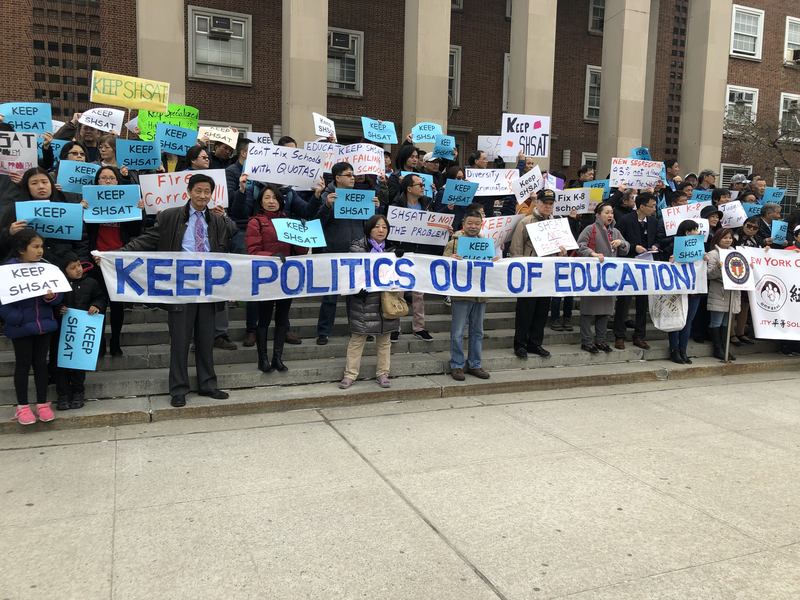
The fight over the SHSAT, the test that determines admission to New York City’s specialized high schools, is often framed as a struggle between reformers who want to boost integration, and predominantly Asian families who want to preserve the status quo.
But there's a diversity of opinions within the Asian-American community, and Asian New Yorkers on many sides of the current debate argue that the coverage often misses the nuance.
“We’re talking about a diverse community that also has a diverse perspective on the test,” said Vanessa Leung, co-executive director of the Coalition for Asian American Children and Families. “And I think that all gets lost.”
Her group opposes the high school test.
“There is always this hope and belief that when you work really hard you will benefit,” she said. “We’ve realized many of our families don’t have the same access. It doesn’t mean that they’re not working hard or don’t deserve to be in a great school.”
Leung pointed to recent refugees who don’t know how to navigate the complex school system, the many Asian New Yorkers in poverty who can’t afford test prep; or the 6,000 Asian students who took the test and didn’t get into the specialized schools.
"For those who are unfamiliar with the system, for those who are limited English proficient, for so many immigrant families [the test] is an additional barrier that has been set up," she said.
The coalition joined the civil-rights group the NAACP in a lawsuit against the SHSAT in 2012.
Meanwhile, SHSAT supporters also feel misrepresented.
"I think the worst thing is when reading the newspapers they say opponents of integration," said Chris Kwok with the Chinese American Citizens Alliance of Greater New York.
The alliance also sued the city to stop the first phase of the mayor’s plan from going forward.
“We oppose getting rid of the test. We care tremendously about diversity,” he said. “We care that there are not enough black and Latinos in the schools but we think the policy prescriptions that flow out of that should be something different.”
His group is calling for more gifted and talented programs, more specialized schools, and more opportunity for everyone.
At a recent forum in Queens, Linda Lam — a parent leader who supports the test — said the way the debate has been portrayed "pits minorities against each other."
Alana Mohamed — who opposes the test — agreed. She said it's time for communities of color to work together to improve the system. "I sincerely hope that we can move past the rhetoric and educate ourselves about the complex racial dynamics at play," she said. "Otherwise we are just stuck in the gridlock."
